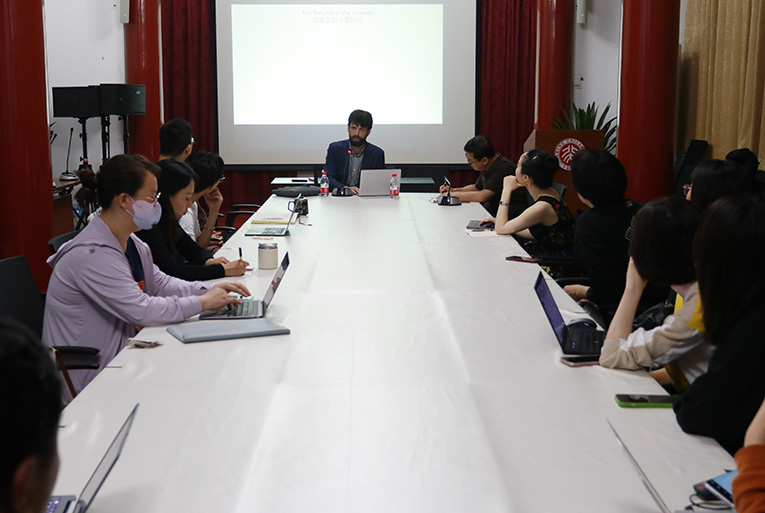On May 10, 2024, the Institute of International and Strategic Studies (IISS), Peking University (PKU) held the 76th North Pavilion Seminar series lectures. Dr. Peter Slezkine, co-director of the Monterey Trilateral Dialogue Project, gave a lecture titled "Free World: The Logic of U.S. Leadership?" The lecture was hosted by Guan Guihai, Executive Vice President of IISS and Associate Professor at the School of International Studies (SIS), PKU.

Dr. Slezkine first reviewed and analyzed the origins, impact, and application process of the "Free World" concept that shaped U.S. foreign policy in the mid-20th century. Based on historical data, he pointed out that the "Free World" was initially proposed as a political concept in the 1940s and was soon accepted by the American public as a given reality. The U.S. used this concept to transform its foreign policy. However, rooted in the Cold War context, this concept inherited the dichotomous "two worlds" paradigm that had repeatedly appeared in American history and had become a mainstream framework for U.S. foreign policy. The U.S. has long been unable to give it a positive ideological definition of foreign policy aside from its negative geopolitical definition of bloc formation, leading to rigid policies like global containment strategies and hostility towards the non-aligned movement.
Then, based on statistical analysis of word frequency data on "Free World" in U.S. government documents and political speeches from different eras, Dr. Slezkine noted that with the happening of a series of historical events, such as the emergence of the Third World, the rise of the non-aligned movement, the normalization of U.S.-China relations, and the collapse of the Soviet Union, the U.S. government's emphasis on the "Free World" framework has been less since the 1960s. Nevertheless, its legacy and occasional revival still influence today's U.S. foreign policy.
In the Q&A session, Dr. Slezkine discussed with the audience on issues such as the relationship between China, the U.S., and the EU within the "Free World," the relationship between the "Free World" classification framework and other international classification frameworks, the relationship between social change and the construction of the "Free World," and interpretations of the political significance of the "Free World" by different international relations schools. (Content contributor: Wang Runtan)
Editor: Li Fangqi Photographer: Zheng Peijie

